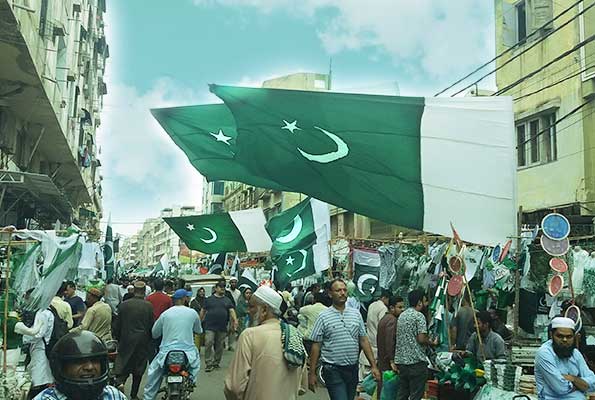As the country struggles with high fuel and energy prices, Pakistan’s inflation rate increased to 31.4% year over year in September 2023 from 27.4% in August, according to the latest Statistics Bureau figures.
After a USD 3 billion loan program granted by the International Monetary Fund in July 2023 avoided a sovereign debt default but came with stipulations that hindered attempts to control inflation, the country is now starting a difficult route to economic recovery under a caretaker administration.
Inflation increased by 2% month over month in September 2023, as opposed to 1.7% in August.
Reforms mandated by the International Monetary Fund bailout, such as a demand that subsidies be eliminated and an easing of import restrictions, have already fueled annual inflation, which reached a record 38.0% in May 2023.
The rupee hit record lows in August 2023 before surging in September to become the best-performing currency as a result of authorities cracking down on unregulated FX transactions. Interest rates have also increased to their highest level, at 22%.
In its latest monthly report, the Ministry of Finance stated that it expected inflation to stay high in the month of November 2023, averaging about 29-31% as a result of an increase in electricity tariffs and a significant rise in fuel prices.
However, the research stated that inflation was anticipated to moderate, notably from the start of the current fiscal year’s second half, which begins on January 1.
After two consecutive price increases, Pakistan reduced gasoline and diesel prices from a record high. Following the crackdown on illicit FX transactions, the finance ministry noted improvements in the exchange rate and global petroleum product prices.
Since November 2021, inflation has been elevated and consistently doubled. Inflation in the South Asian nation exceeded its 21% fiscal year target, averaging 29% in the first quarter.
Sporadic protests broke out in September as a result of deteriorating economic conditions and escalating political unrest ahead of a national election due in November 2023. Many Pakistanis claim they are having difficulty making ends meet.
The inflation reading, according to analysts, was in line with what the market anticipated.
According to Tahir Abbas, head of research at Karachi-based investment firm Arif Habib Limited, inflation appears to have peaked for the current fiscal year and will then start to decline.
During an interaction with Reuters, Fahad Rauf, head of research at Karachi-based brokerage Ismail Iqbal Securities, said, “The low base effect, which was also emphasized in the most recent monetary policy statement, is the main cause of the higher reading. We anticipate inflation to decrease in the upcoming months, falling to about 26-27%.”
According to Rauf, greater inflation rates shouldn’t affect monetary policy.



